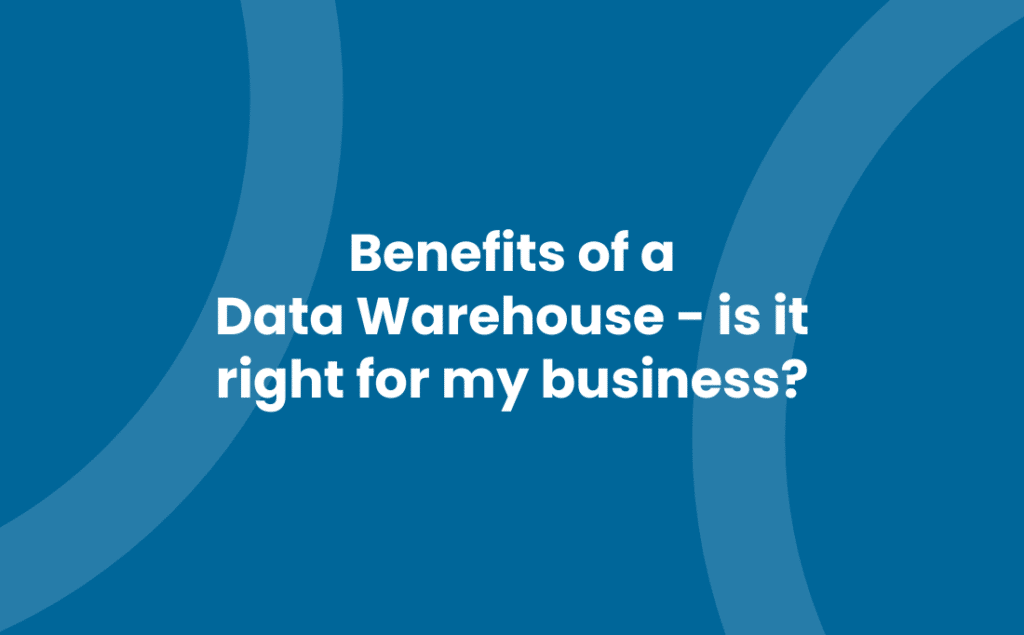There are many benefits of a Data Warehouse. However, if you’re not sure what a Data Warehouse is, it can be hard to understand if your business could benefit from one. We have put together a checklist that is really useful in that it gives you business scenarios where a Data Warehouse can solve multiple bottlenecks, duplications of effort, company transparency and data integrity.
Why might I need a Data Warehouse?
As we navigate our way through the digital landscape, with multiple systems being added to our work processes, sometimes we end up with convoluted procedures that not only waste valuable time, but actually create data errors, extra workload, use out of date pricing and ultimately incorrect addresses for deliveries or invoicing.
It also means the day-to-day is the entire focus of the workforce, so they have no time to look at the bigger picture, trends in data and customer habits. Management reporting is disjointed and must be calculated manually, which takes up more time and has more chance for errors.
“Once the solution was rolled out we could see the improvements it made. The time it took for an account to be set up went from 5-7 minutes, to a click of a button. We also saw an improvement on rejections due to incorrect data. We were able to provide quotes to our customers faster and had a built-in customer signature portal that enabled us to cut costs on a third party e-signature system.” – Debbie Pugh, Deputy Managing Director, Restore Datashred (part of Restore plc)
Keeping the whole business on one track
Ask yourself this question – is your data inconsistent between your systems? This is the beginning, the middle and the end of it. If you have to consolidate data for reports, view historic data from different systems, re-enter information more than once, then you are already on the back foot.
Companies need their finance teams, contract teams, account managers, support teams, site engineers and delivery drivers to be working with the same data: the correct delivery addresses, contact numbers and email addresses.
Does your account management team ever process orders for customers that are on hold by the finance department? Do contracts expire before renewals have been processed? Does your support team log tickets for customers that don’t actually have an active support contract? It happens far too often.
All these small bumps in the road of a customer journey can cause issues. Both with your own teams, and much more importantly, the customer experience. They definitely are a severe drain on staff time and costs when things go wrong.
Benefits of a Data Warehouse – allowing you to go one step at a time
A Data Warehouse can be the starting point to address some or all of these problems. The good thing is you can approach each scenario one at a time. So instead of a massively expensive, all encompassing “solution” that promises everything – but is actually more compromising than first appears – working with what you have and evolving your systems with a Data Warehouse can be practically and economically much more achievable.
Further information on the benefits of a Data Warehouse
Wondering if the benefits of a Data Warehouse could help your business? Our handy checklist will help you decide.
Get in touch to discuss your business challenges and how you could benefit from a Data Warehouse.


